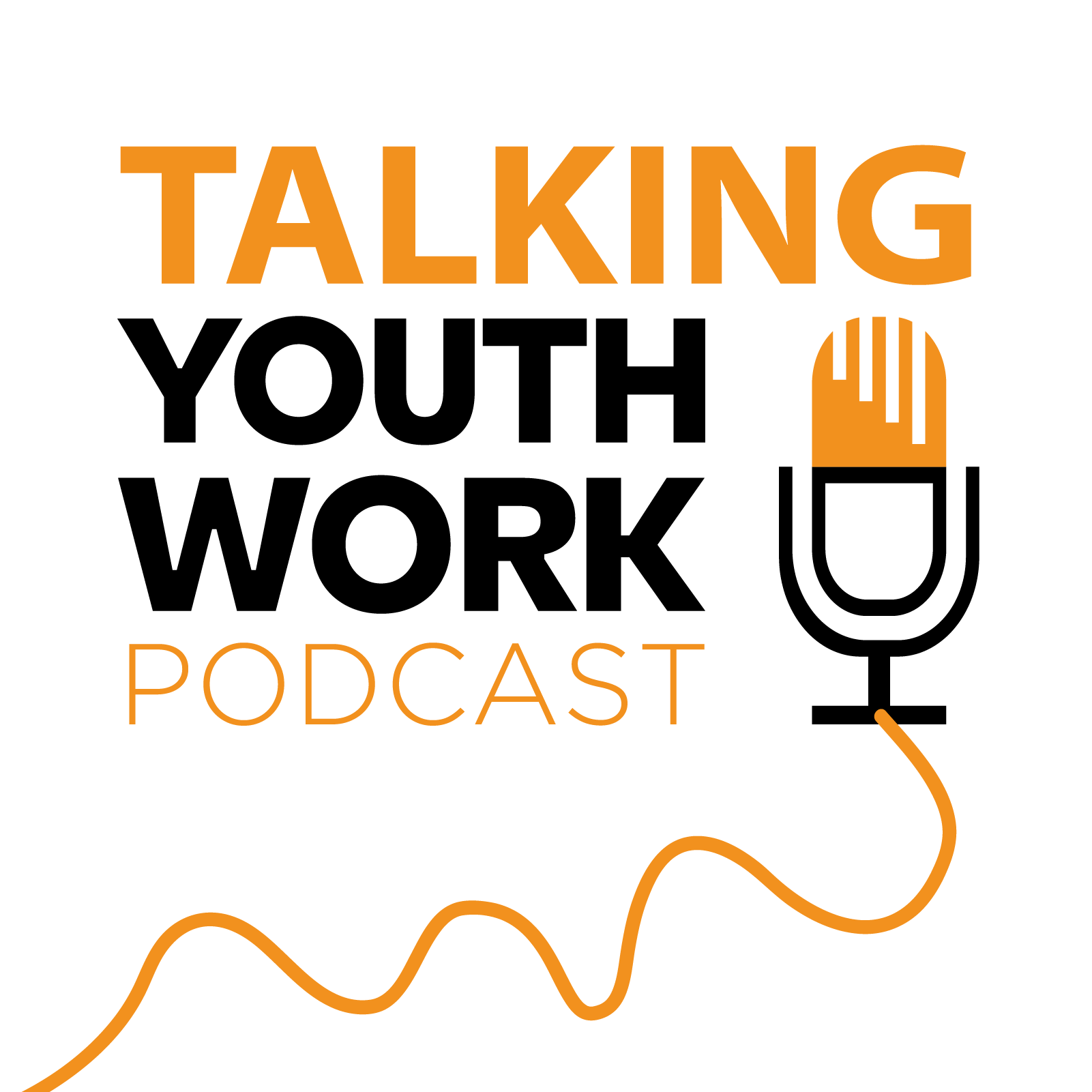Episodes
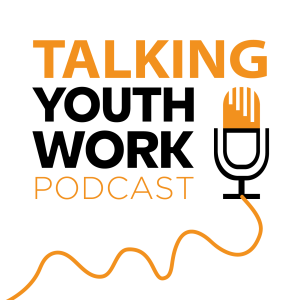
Monday Jun 16, 2025
Monday Jun 16, 2025

Hello dear listeners,
In this episode, we talked with Romy Alexandra, an expert in psychological safety and experiential learning. Her work with NGOs on youth leadership and human trafficking prevention highlighted the need for engaging, effective learning methods, leading her to experiential learning and psychological safety as its foundation.
Romy defines psychological safety, drawing from Dr. Amy Edmondson, as a shared environment where individuals feel safe to take interpersonal risks without fear of punishment or humiliation. This environment fosters vulnerability, inclusion, and innovation, which are essential for learning spaces. She emphasises that it’s not about comfort but about creating trust to navigate discomfort, enabling youth to contribute authentically.
We explored some of the misconceptions around these topics, such as assuming humour indicates safety. Romy cautioned that sarcasm or inappropriate humour can alienate participants, while humour often masks discomfort. Another pitfall is forcing vulnerability too soon, which can shut down the learning process. Instead, facilitators should offer choices and gradual engagement to build trust.
Romy also addresses generational shifts, noting that post-COVID attention spans are shorter, and younger generations use technology as a safety net. She advocates for new conversations to address these changes while grounding youth work in the core principles of experiential learning. In response to the common critique that younger generations are "too sensitive," Romy suggests approaching conflicts with curiosity, fostering dialogue to repair relationships rather than shutting down in the face of discomfort.
Find more about Romy Alexandra Resources and Articles
People and books mentioned in the episode:
- Daring Greatly by Brené Brown
- The Fearless Organization by Amy C. Edmonson
For any ideas, comments or suggestions, please email us at talkingyouthworkpodcast@gmail.com.
This episode was part of the Inception of Learning project, funded by the Erasmus+ Youth Programme. The project aims to support youth workers, trainers, and educators in delivering high-quality learning experiences for young people in the context of Generation Z and Generation Alpha.
#YouthWork #PsychologicalSafety #ExperientialLearning

Wednesday Mar 26, 2025
Spaces of Unlearning with Juan Camilo, season 4, episode 2
Wednesday Mar 26, 2025
Wednesday Mar 26, 2025

Hello dear listeners,
In this episode, we begin exploring the idea of unlearning, joined by Juan Camilo, a youth worker from Colombia who has been living in Iceland. Juan has a background in international education, cultural media communication, and religious studies. He is also an artist and educator who uses transformative pedagogy and non-formal education to promote human ecology and holistic human development.
Unlearning is the process of questioning deeply ingrained beliefs and assumptions. We discuss what unlearning means, how educators can approach it, and how we can create safe spaces for it—both for young people and ourselves.
In the context of Western civilisation, climate change, and social unrest, Juan suggests that unlearning can help dismantle harmful systems. He believes it is essential to recognise our interconnectedness with life and the environment rather than centring ourselves as humans.
Unlearning involves exploring different perspectives, letting go of ingrained assumptions, and using creative and playful methods. It requires courage to navigate uncertain spaces and emphasises the importance of community support. Juan also highlights the need to integrate ancestral knowledge into contemporary youth work to foster deeper connections with ourselves, our surroundings, and the larger community.
It was an insightful and enriching conversation—we hope you enjoy it!
For any ideas, comments, or suggestions, please email us at talkingyouthworkpodcast@gmail.com.

Sunday Feb 16, 2025
Holistic Trainer with Katya Sherer, season 4, episode 1
Sunday Feb 16, 2025
Sunday Feb 16, 2025

Hello Dear Listeners,
We are back and we missed you! Did you miss us?
In this first episode of our fourth season, we talked with Katya Sherer about youth work trainers’ wellbeing.
Katya is a trainer, active in the youth sector since 1998. She began her journey as a volunteer and peer-to-peer trainer, later advancing to roles as a trainer and project manager for initiatives in youth work and human rights education. Currently, she works as a freelance trainer and consultant and serves as a board member of the International Youth Work Trainers Guild.
Trainers usually come to the field with a mission mindset and, sometimes, what started as service becomes sacrifice, at least on some area in their life, and it doesn’t have to be like that.
Trainers’ wellbeing is something that the “Holistic Trainer Project” addressed by looking at different areas that impact trainers’ lives.
. Physical Health - Through expert advice and practical tips, it helped trainers prioritise their health and vitality.
. Mental Health and Well-being - Mental health and emotional well-being is essential for resilience and success. The project offered resources to support trainers in managing stress, maintaining balance, and fostering mental wellness.
. Life on the Road - A big part of the life of international youth work trainers is on the road! We provide insights and resources to facilitate smooth experiences while travelling and working abroad.
. Legal Matters - The project offered guidance on navigating legal issues and ensuring trainers' work is safe, recognised and respected, by exploring contractual matters, taxation regulations, insurance, intellectual property laws, and other legal and financial matters
. Self-Management - The project supported trainers with strategies for personal branding, networking, and professional growth.
The International Youth Trainers Guild with other partners, created a lot of resources that can help trainers to have a more fulfilling and sustainable lifestyle, providing more impactful learning experiences and adding longevity to their careers.
Any ideas, comments and suggestions, email us at talkingyouthworkpodcast@gmail.com.

Wednesday Jan 29, 2025
EduScrum with Mark Postema, season 3, episode 7
Wednesday Jan 29, 2025
Wednesday Jan 29, 2025
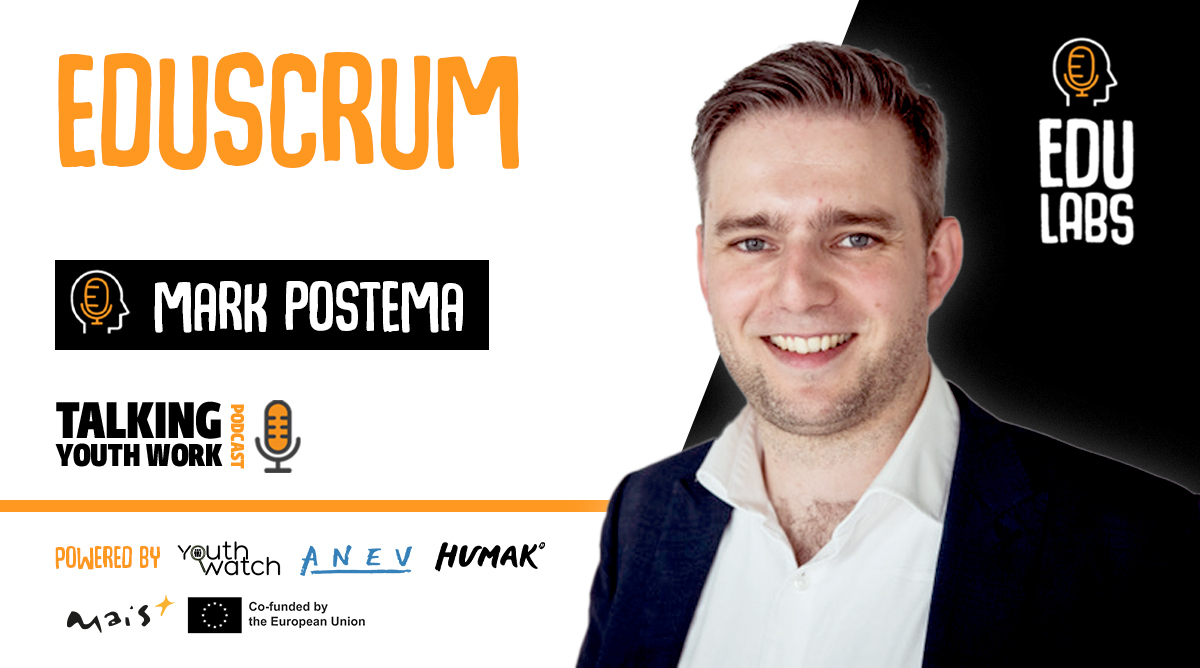
In this episode, we had a conversation with Mark Postema, an EduScrum trainer who also teaches English and Physics. Edu what? You might say.
EduScrum is a framework that comprises tools and ceremonies aimed at creating a user-centered learning experience. It involves learners and a facilitator working together to achieve this goal, with the framework built on four pillars: transparency, adaptation, review, and trust.
During our discussion, Mark emphasized the significance of trust, which we believe is a fundamental aspect of both formal and non-formal learning experiences. Without trust, we cannot perform at our best. We also explored the boundaries between formal and non-formal learning, ultimately realizing that there will come a day when we will discuss learning in a broader sense. This recognition is key to personal growth, regardless of age, whether we are 14, 30, or 70 years old.
Collaboration is a crucial element within the eduScrum framework, highlighting that learning is a collective effort. There is no such thing as a "self-made learner."
EduScrum provides a well-structured set of principles that can guide us as we navigate the subjects we seek to explore. One excellent example is the use of planning poker, where we evaluate the "cards" we have to play with. The assessment of progress is conducted in a manner that prioritizes the learning process rather than just achieving a certain goal. It involves assessing our current position, determining where we want to be, and understanding how much work is required to reach our desired destination.
We genuinely enjoyed this conversation, as it was thought-provoking and inspiring to discover the similarities between EduScrum and other frameworks. However, we also recognized its unique qualities that benefit both ourselves and the young individuals we work with.
If you're interested in learning more about eduScrum, you can find a wealth of valuable information in the following links:
https://www.nonformal-education.eu/metody/eduscrum/
Any ideas, comments and suggestions, email us at talkingyouthworkpodcast@gmail.com.
First published on Tuesday Jun 20, 2023

Wednesday Jan 29, 2025
Queer Youth Work with Vika Matuzaitė, season 3, episode 6
Wednesday Jan 29, 2025
Wednesday Jan 29, 2025
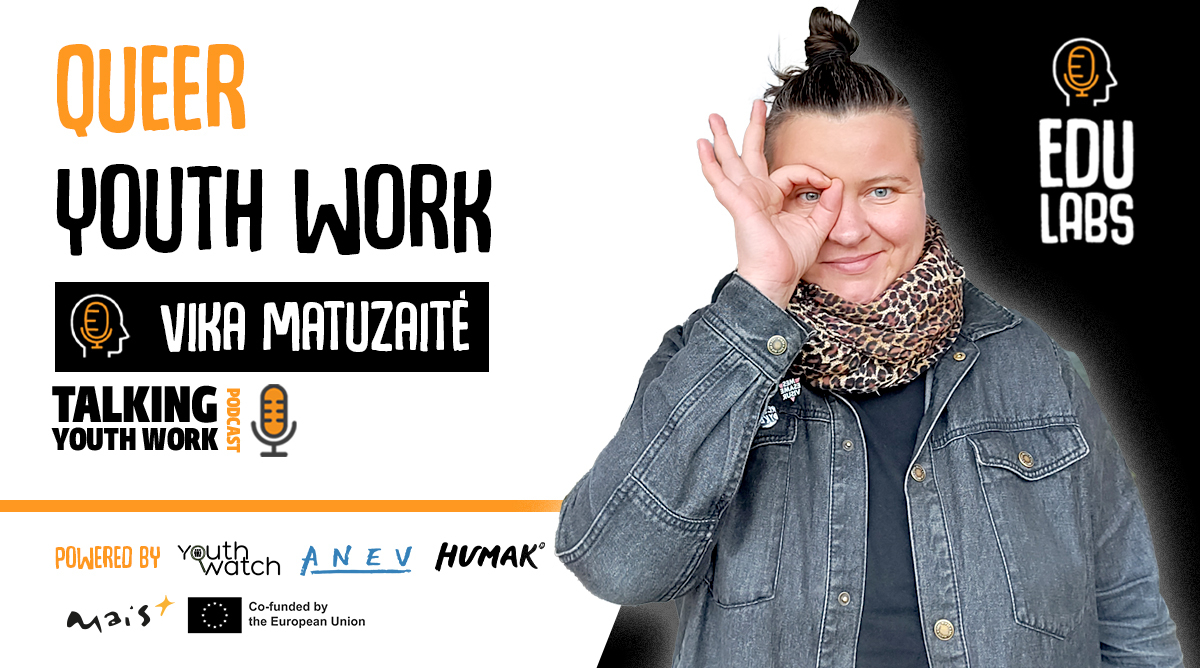
Hello dear listeners,
In this episode, we had the privilege of speaking with Vika Matuzaitė, a non-formal education trainer and facilitator, who enlightened us about the concept of Queer Youth and how youth workers can support Queer young people.
In today’s world, there can be significant confusion surrounding this topic, where gender, identity, and sexuality are often erroneously treated as interchangeable terms.
It also happens with other terminology. While the LGBTQI+ acronym encompasses certain aspects, the term ‘queer’ transcends gender and sexuality, encompassing a broader spectrum. Unfortunately, queer young individuals encounter numerous challenges stemming from the lack of understanding they often face, particularly within their own families and social circles. Society bombards them with messages suggesting that deviating from the norm is ‘wrong,’ leaving them feeling inadequate, isolated, and excluded.
Tragically, the queer population faces a higher risk of homelessness, addiction, and suicide. Therefore, it is crucial for everyone to gain a deeper comprehension of diversity and actively embrace the unique challenges faced by queer youth from a young age. Vika shared a poignant story about a 16-year-old who confided in her, expressing gratitude for being the first person with whom they could openly discuss their experiences of the world.
This example forces us to reflect on the essential role each of us plays in creating inclusive spaces where individuals can authentically express themselves and find acceptance for their experiences.
As someone’s grandmother wisely said, ‘We need create the space where people matter more than opinions.’ We encourage you to listen to this enlightening conversation and share your thoughts with us.
The EU LGBTI strategy: https://eur-lex.europa.eu/legal-content/EN/TXT/?uri=CELEX:52020DC0698
Youth worker’s resource: https://cara-friend.org.uk/wp-content/uploads/2018/09/22307-CaraFriend-Youth-Worker-Booklet-LGBTQ-Final-screen.pdf
Working with kids with the topics of gender and sexuality (Compasito companion): http://ifm-sei.org/educational-resources-2/rainbow-resources/
A kick-start reading about queer theory: https://iconbooks.com/ib-title/queer-a-graphic-history/
Any ideas, comments and suggestions, email us at talkingyouthworkpodcast@gmail.com.
First published on Wednesday May 24, 2023

Wednesday Jan 29, 2025
Esports in Youth Work with Jan Lai, season 3, episode 5
Wednesday Jan 29, 2025
Wednesday Jan 29, 2025
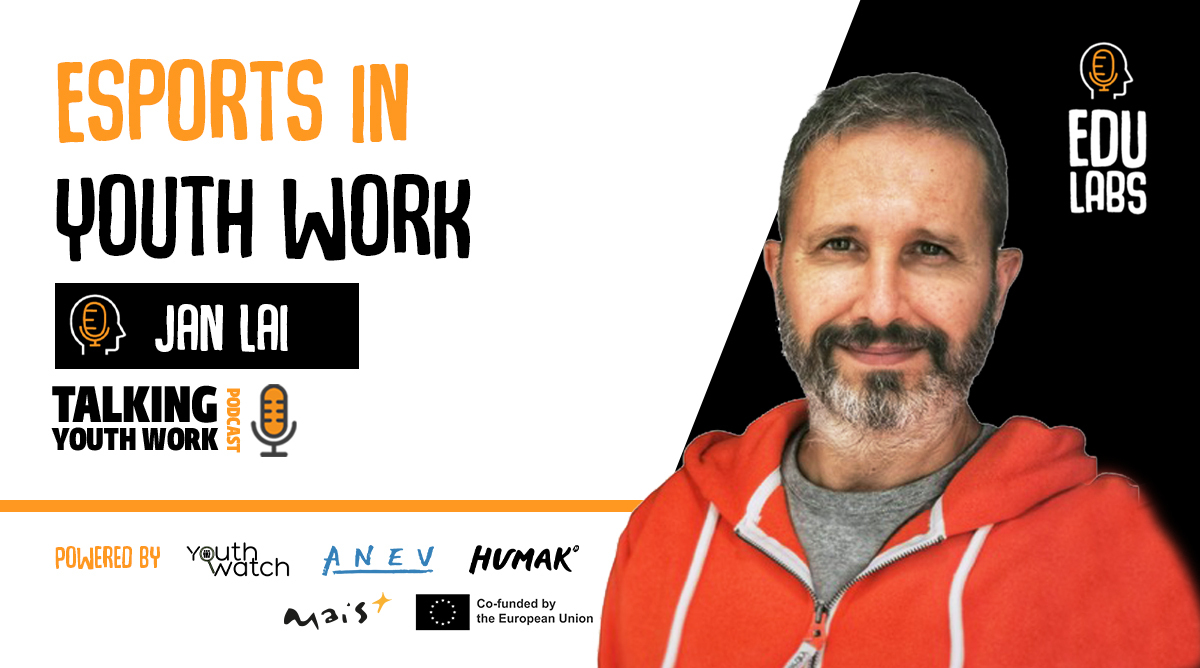
Dear listeners,
In this edition, we had the pleasure of conversing with Jan Lai, an expert in international youth mobility, non-formal education, youth work, digital literacy, and online learning. Jan is a passionate and restless soul who enjoys a good challenge.
During our chat, Jan shared how he initiated an esports* team with a group of young people in his hometown, Cagliari, with a modest budget.
*Esports, short for electronic sports, is a form of competition using video games.[1] Esports often takes the form of organized, multiplayer video game competitions, particularly between professional players, individually or as teams. (Source wikipedia)
In addition to playing games, the youngsters were tasked with assembling the computers they would use to play. This undertaking was a unique learning experience for all involved, as they had to learn how to work together as a team to build computers from scratch. The project is recent but already a success, and the young people learned valuable skills such as teamwork, patience, and technical know-how.
Video games can be an excellent tool to engage young people in learning experiences that may not otherwise pique their interest when presented in a formal educational setting. Furthermore, gaming can serve as a platform for socializing and teamwork, where young people can work together towards a common goal.
By encouraging young people to step out of their comfort zones, learn new skills, and commit to something they are passionate about, they can become more motivated and interested in developing their abilities.
Other groups across Europe are also creating esports teams and organizing tournaments to compete, socialize and share experiences beyond virtual settings.
We hope you enjoyed this episode as much as we did.
Here’s the link to a publication about Participation with Videogames.
https://participationpool.eu/resource/exploring-participation-with-videogames/
Any ideas, comments and suggestions, email us at talkingyouthworkpodcast@gmail.com.
First published on Friday Apr 28, 2023

Wednesday Jan 29, 2025
Learning environments with Snežana Bačlija, season 3, episode 4
Wednesday Jan 29, 2025
Wednesday Jan 29, 2025
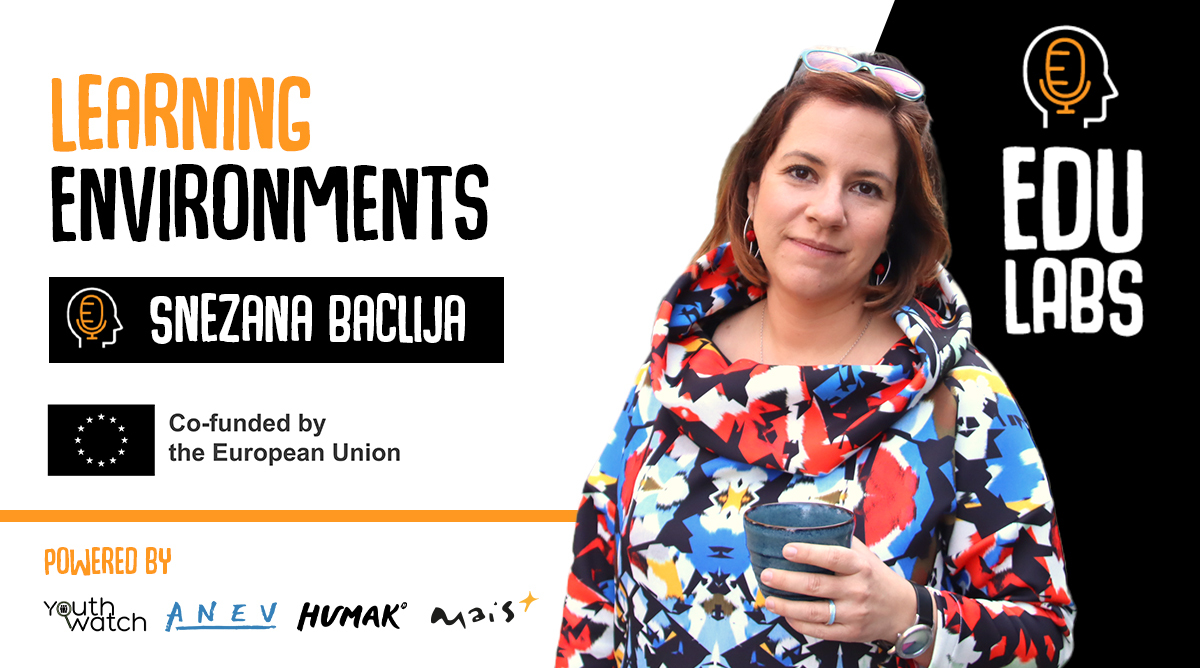
Hello dear listeners,
In this episode, we talked to Snežana Bačlija Knoch, an educational consultant in the European youth field and a facilitator of learning for nearly two decades. She loves to create encouraging and inviting learning environments, facilitate action-oriented value-based learning, and experiment with (and sometimes create) different educational tools and approaches.
We started by trying to understand what creates enriching learning environments. Is it the people? Is it the physical space? It’s a combination, for sure, but it's interesting to explore how the environments influence the group and vice-versa. It’s not the same thing to discuss diversity with a non-diverse group of people in a plain white room or having a diverse group that goes into town to explore and talk to people on the streets.
As mentioned in our episode about learning experience design, it’s important to “start with the learners in mind. Who are they? What do they know already? And how can we help them learn something new?” Now we might add: What environment will this need? What kind of space? What group of people?
Of course, in real life, there are spatial limitations, we don’t always have the training rooms that we would like to create the environment that would best suit the learning experience, but we can always be creative in how we use it, or explore the surroundings, find a park, a library, a coffee shop nearby, that will help facilitate the discussions and the learning that we are aiming towards.
Have you ever thought about the environments that suit your learning the most?
What kind of spaces and people help you learn the best?
Know yourself and bring the others with you. A very insightful episode, have a listen and let’s keep Talking Youth Work.
Any ideas, comments and suggestions, email us at talkingyouthworkpodcast@gmail.com.
First published on Tuesday Mar 14, 2023

Wednesday Jan 29, 2025
Wednesday Jan 29, 2025
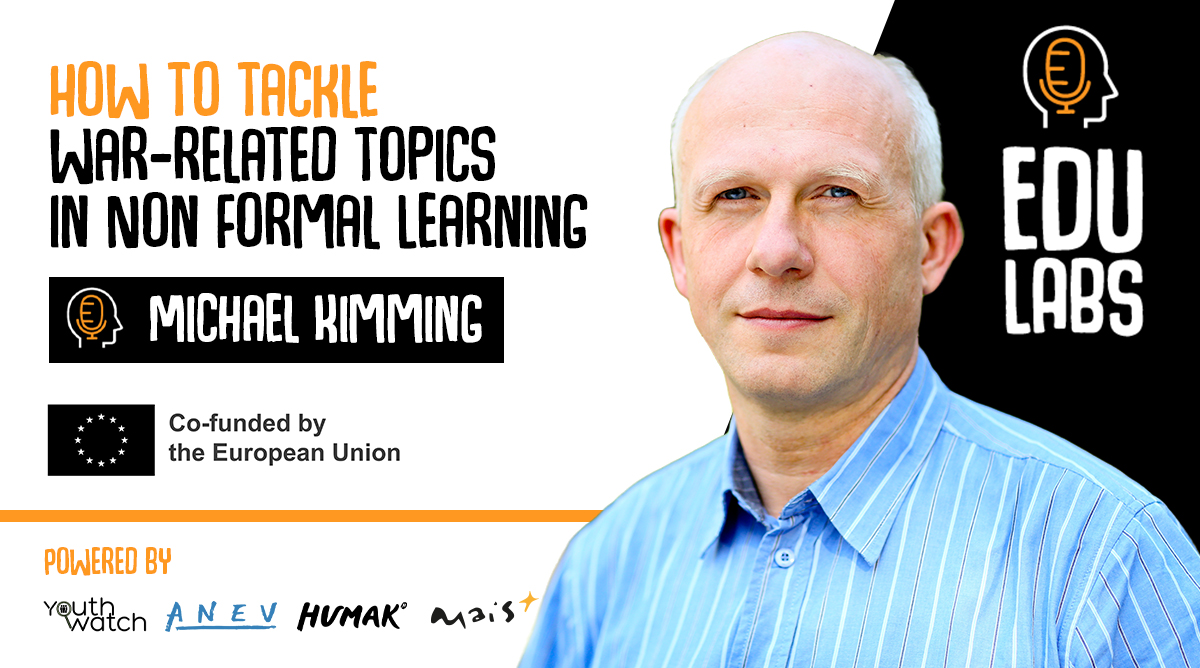
Hello dear listeners,
This time our conversation was with Michael Kimming, an intercultural trainer, coach, online instructor and facilitator. Michael and other colleagues published an eBook called “How to Talk About War – Facilitating Learning in the Face of Crisis”, which became the topic of our conversation.
Michael was facilitating a workshop when the war in Ukraine began. Some of the participants were from the involved countries, so there was a real need to address the situation. Michael explained how he felt and how there were no tools to deal with this topic initially.
His advice for you if you ever face a similar situation is to simply stay there and feel what you feel in this moment of uncertainty. Don’t worry about not having any tools. The tools come a little later. First, look inside yourself and start from there. And then help participants express their own emotions in a clear and helpful way.
Although some people feel the urge to act, Michael suggests that action can come afterwards, first its important to address the emotions and the needs of participants, which will help create the safe space needed for effective action.
This was a fantastic, deep and rich conversation that left us wanting a round two with Michael to explore more of this fascinating topic.
Links:
Ebook: How to talk about war. Facilitating learning in the face of crisis by Dagna Gmitrowicz, Marta Brzezińska-Hubert and Michael Kimming. Self-published, Berlin, Poznań, Warsaw, March 2022
SALTO Toolbox: https://www.salto-youth.net/tools/toolbox/tool/how-to-talk-about-war-facilitating-learning-in-the-face-of-crisis.3219/
Blog: http://michaelkimmig.eu/how-to-talk-about-war-facilitating-learning-in-the-face-of-crisis/
Online Course: Talking about war and peace. Facilitating learning in times of crisis. Course authors: Marta Brzezińska-Hubert and Michael Kimmig : https://hop.salto-youth.net/courses/talkingaboutwar
Any ideas, comments and suggestions, email us at talkingyouthworkpodcast@gmail.com.
First published on Tuesday Feb 21, 2023

Talking Youth Work
Like a “shot” of inspiration, all of our guests have a unique point of view about how can Youth Workers shake up, upgrade and innovate on their daily work. If you want to learn more about the approaches and methods presented in the podcast, you can look up step-by-step tutorials on our Tools section, read the Future Labs Handbook or even learn about training Youth Workers on these tools by using our open source Training Program. Enjoy!

